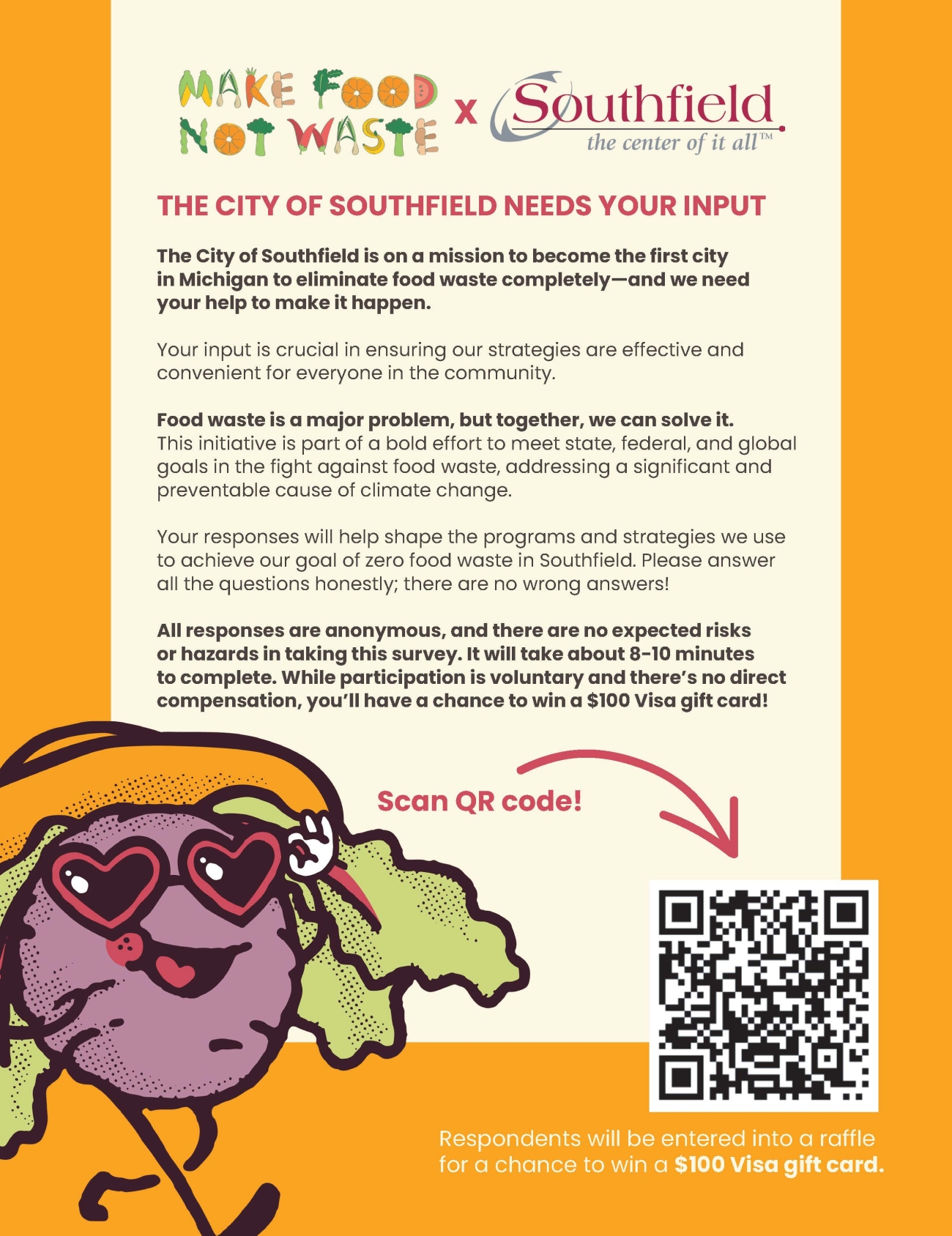Make Food Not Waste & City of Southfield seek public input for Southfield Food Waste Elimination Pilot Residential Study
July 28, 2024
The city of Southfield is on a mission to become the first city in Michigan to eliminate food waste. To accomplish this, the city of Southfield and Make Food Not Waste need the community’s input and participation in the Southfield Food Waste Elimination Pilot Residential Study.
To complete the survey, please visit the following link by August 11.
All responses to the survey are anonymous, and there are no expected risks or hazards in taking this survey. The survey will take the average participant about 8-10 minutes to complete. Residents who complete the survey will be entered into a raffle for a chance to win a $100 Visa gift card!
Input is crucial in ensuring strategies are effective and convenient for everyone in the community. Responses will help shape the programs and strategies used to achieve our goal of zero food waste in Southfield.
The 2030 project initiative was created in 2023 by Make Food Not Waste to support the MI Healthy Climate Plan. The plan is part of a bold effort to meet state, federal, and global goals in the fight against food waste, addressing a significant and preventable cause of climate change. In America, 40 percent of the food produced is wasted, meaning 24 percent of solid waste in US landfills is food. By beginning the journey in Southeast Michigan, the most highly populated quadrant of Michigan, the goal is to create efficiencies that would not be realized by simply working statewide. More information about the 2030 pilot project can be found at https://makefoodnotwaste.org/the-2030-project/.
About Make Food Not Waste
Make Food Not Waste has a mission to keep food out of landfills and slow climate change by creating lasting solutions to food waste through education, food upcycling and advocacy. Make Food Not Waste envisions Michigan as a state where no food creates methane emissions in landfills. They work to stop food waste before it occurs and provide overlooked food a place to go.
